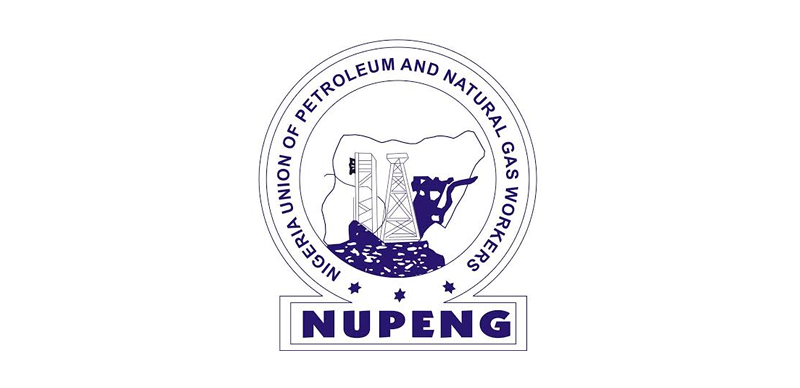Despite last-minute appeals by the Federal Government, the Nigeria Union of Petroleum and Natural Gas Workers (NUPENG) has commenced a nationwide strike today, in protest against alleged anti-labour practices by the Dangote Petroleum Refinery. The industrial action threatens to paralyse fuel distribution across the country, with industry insiders warning of imminent fuel scarcity and economic disruption.
The union’s president, Comrade Williams Akporeha, confirmed that while the government had reached out to the union and scheduled a conciliatory meeting for today in Abuja, the strike would proceed as planned.
“The Federal Government and the NNPC have been in touch with us, but there is nothing concrete yet. The strike starts this morning, as planned,” Akporeha said on Sunday.
Genesis of the dispute
The crisis stems from the Dangote Refinery’s decision to import 4,000 Compressed Natural Gas (CNG)-powered trucks for direct fuel distribution to retail stations. NUPENG alleges that the refinery, owned by Africa’s richest man, Alhaji Aliko Dangote, is attempting to bypass unionised workers by recruiting new drivers and compelling them to sign undertakings prohibiting union membership.
In a joint statement signed by Akporeha and the union’s General Secretary, Afolabi Olawale, NUPENG condemned what it described as “anti-labour and monopolistic” practices, accusing the Dangote Group of seeking to erode workers’ rights protected under Nigeria’s 1999 Constitution and international labour treaties.
“This is an affront to freedom of association. No employer has the right to prevent employees from joining unions. Slavery ended centuries ago,” the union stated.
READ ALSO: NUPENG accuses Dangote refinery of attempting to reintroduce “slavery” ahead of planned strike
Accusations of union suppression
The union further alleged that the management of MRS Oil, owned by Dangote’s cousin, Sayyu Dantata, had begun recruiting drivers under similar anti-union conditions. These actions, NUPENG warned, would decimate the jobs of members in its Petroleum Tanker Drivers (PTD) branch, prompting the decision to halt fuel loading nationwide.
The union also discredited a statement by Enoch Kanawa, who claimed to represent the Direct Trucking Company Drivers Association (DTCDA), urging Nigerians to disregard NUPENG’s strike. NUPENG maintained that Kanawa is not a tanker driver but a lawyer, and described the DTCDA as a “Dangote-created phantom association” aimed at undermining legitimate unions.
Government appeals for calm
In an attempt to avert the strike, Minister of Labour and Employment, Muhammad Dingyadi, announced on Sunday that all stakeholders had been summoned for an emergency meeting.
“Since I have intervened, I plead with NUPENG to rescind their decision to shut down the petroleum sector from tomorrow. I also appeal to the NLC to withdraw the red alert issued to its affiliate unions,” Dingyadi said in a statement.
He warned that an industrial action in the petroleum sector would inflict heavy economic losses and bring widespread hardship.
“Even a single day of strike will have devastating consequences – lost revenue in billions and untold suffering for Nigerians,” he cautioned.
Marketers, allies join the fray
Backing the strike, the Petroleum Products Retail Outlet Owners Association of Nigeria (PETROAN) announced the closure of its filling stations from Tuesday, 9 September, for a three-day period. PETROAN’s president, Billy Gillis-Harry, said the decision was both a show of solidarity and a protest against monopolistic tendencies in the petroleum downstream sector.
“If our pump attendants, who are NUPENG members, are on strike, we cannot open the stations. We also fear unfair competition that could force independent depot owners and retailers out of business,” he said.
Gillis-Harry warned that the aggressive expansion strategy by Dangote Refinery would risk millions of jobs in the downstream value chain and lead to mass unemployment.
Falana, labour leaders rally support
Prominent human rights lawyer, Femi Falana (SAN), threw his weight behind NUPENG’s industrial action, arguing that the Dangote Group’s actions violated national and international labour laws.
“The policy of denying workers the right to unionise contravenes Section 40 of the Constitution, as well as ILO Conventions 87 and 98, which Nigeria has ratified,” Falana said.
He urged the government to compel the Dangote Group to respect workers’ rights and end its monopolistic practices, warning that failure to do so could legitimise corporate impunity.
The Nigeria Labour Congress (NLC), through its president, Joe Ajaero, also declared support for the strike, describing the Dangote Group’s alleged anti-union policy as “crude and dangerous.” Ajaero confirmed that all NLC affiliates had been placed on red alert for possible escalation.
Economic rights activists oppose the strike
However, not all stakeholders are aligned with the unions. The Economic Rights Activists (ERA), at a press conference on Sunday, called the strike “reckless and unpatriotic,” warning of devastating consequences for ordinary Nigerians.
“Transport fares will soar, food prices will jump, hospitals will struggle to operate, and small businesses will fold. This is not a fight for justice—it is economic sabotage,” said Dr Josiah Inuwa, ERA’s Executive Director.
ERA accused NUPENG, NLC, and PETROAN of playing into the hands of fuel importation cartels threatened by the Dangote Refinery’s plan for energy self-sufficiency.
“We appeal to all unions to return to the negotiation table. The strike will hurt the masses, not the billionaires,” Inuwa added.
Looking ahead
With tanker drivers already withdrawing services from depots nationwide and filling stations bracing for closure, fuel queues may begin to form within hours. Despite the Federal Government’s intervention, NUPENG’s firm stance suggests a protracted standoff may lie ahead unless urgent concessions are reached.
All eyes are now on today’s conciliatory meeting in Abuja, where the government will attempt to broker a resolution between NUPENG, the Dangote Group, and other key stakeholders.
Until then, the country teeters on the brink of a nationwide fuel crisis—one driven by a collision of labour rights, industrial policy, and corporate power.



